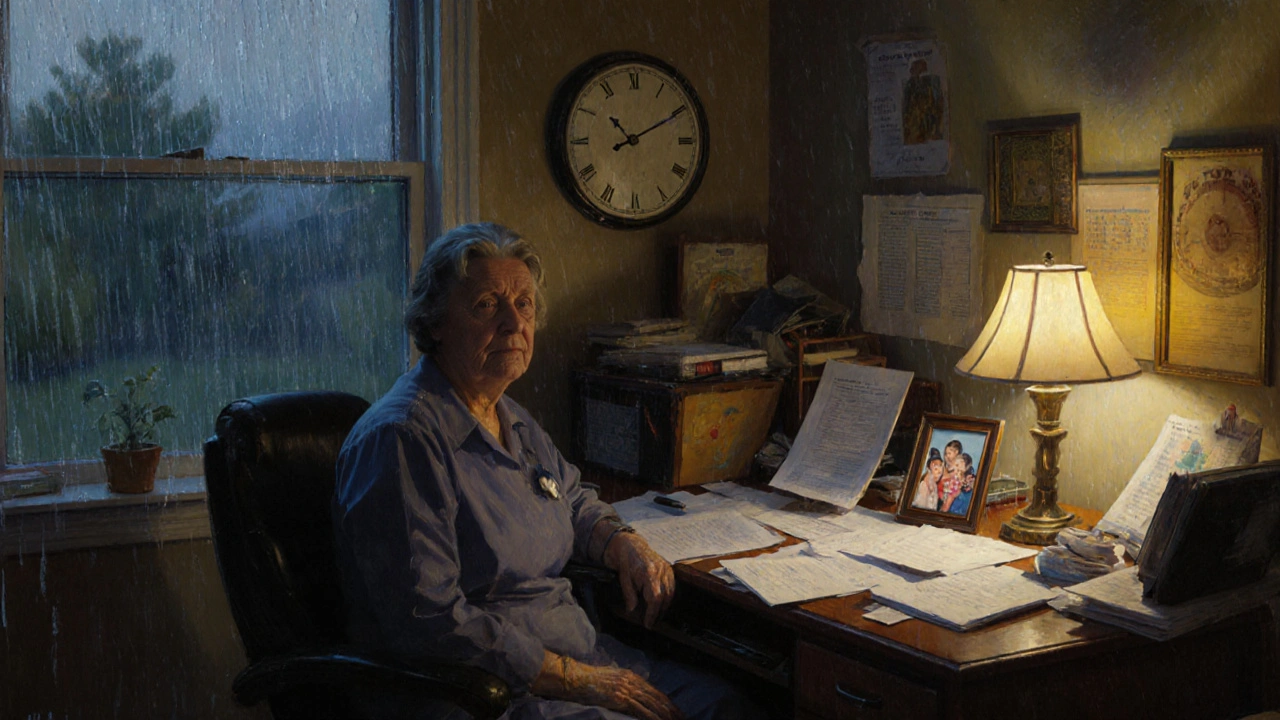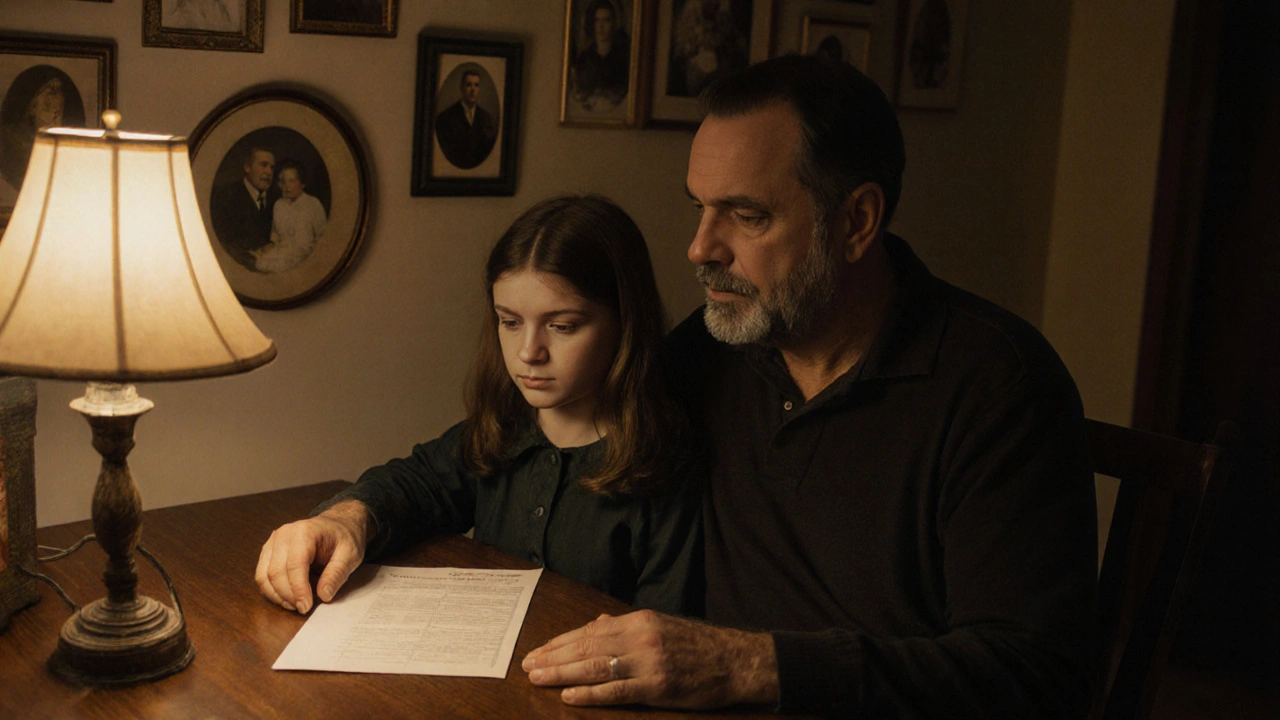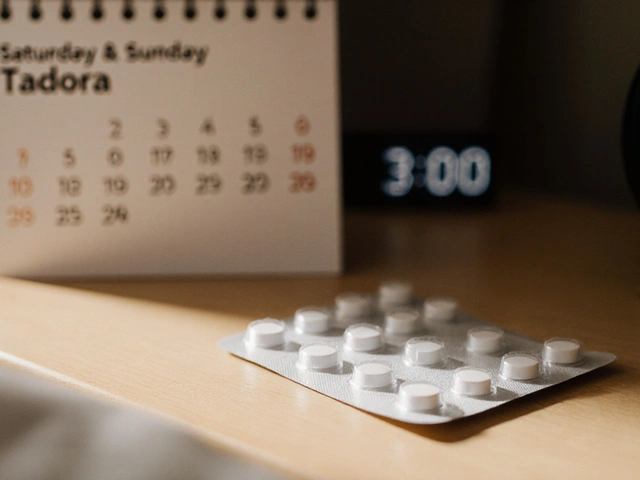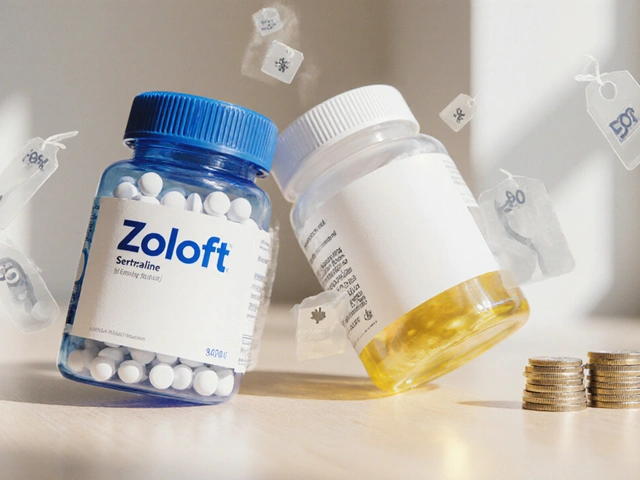When someone is diagnosed with Huntington’s disease, it’s not just a medical label-it’s a life shift. The diagnosis doesn’t come with a cure, but it does come with a clear path forward: understand the genetics, manage the symptoms like chorea, and plan for care before things get harder. This isn’t about hoping for a miracle. It’s about making smart, informed choices while you still can.
How Huntington’s Disease Is Passed Down
Huntington’s disease isn’t something you catch. You inherit it. Every child of a parent with HD has a 50% chance of getting the faulty gene. That’s not a guess. It’s biology. The gene responsible, called HTT, sits on chromosome 4. Inside that gene, a tiny sequence-CAG-is repeated too many times. Normal copies have 10 to 26 repeats. If you have 40 or more, you will develop HD. Between 36 and 39, it’s uncertain-some will, some won’t. And 27 to 35? You won’t get HD, but you might pass on a longer version to your kids.This is where things get tricky. When the gene is passed from father to child, the CAG repeats often grow longer. That’s called genetic anticipation. About 85% of juvenile HD cases-where symptoms start before age 20-come from the father. The more repeats, the earlier the symptoms show up. A person with 50 repeats might start having trouble in their 30s. Someone with 70 might show signs before they turn 10.
Genetic testing can tell you if you carry the mutation. But it’s not a decision to make lightly. Many people at risk delay testing because they’re afraid of what they’ll find. Even with counseling available, 72% wait until symptoms appear. That’s understandable. But knowing your status early changes everything-from family planning to financial decisions to how you live your life now.
Chorea: The Signature Movement
If you’ve seen someone with Huntington’s, you’ve probably noticed the movements. Fidgeting fingers. A sudden shrug of the shoulder. A head jerk that doesn’t stop. These aren’t tics. They’re chorea-uncontrolled, unpredictable, and purposeless motions that flow from one part of the body to another. They look random, but they’re not. Chorea comes from the slow death of specific brain cells in the striatum, the area that helps control movement.Doctors measure chorea using something called the Unified Huntington’s Disease Rating Scale (UHDRS). A score of 0 means no chorea. A score of 4 means constant, severe movements that interfere with everything. In early HD, chorea might just be a slight twitch in the hands. By mid-stage, it spreads to the face, neck, and trunk. Later, it gives way to stiffness, slow movements, and trouble swallowing. That shift-from too much movement to too little-is a sign the disease is advancing.
There are only two FDA-approved drugs specifically for chorea: tetrabenazine and deutetrabenazine. Tetrabenazine reduces chorea by about 25-30%, but it can cause depression in 22% of users. Deutetrabenazine works similarly but with fewer side effects. In 2023, the FDA also approved valbenazine as another option. All three help, but none stop the disease. And none work for everyone. Many people avoid them because the side effects feel worse than the chorea.
Physical therapy doesn’t fix chorea, but it helps you live with it. Aquatic therapy, in particular, has been shown to improve balance 35% more than land-based exercises. That’s huge for someone trying to stay upright and avoid falls. But here’s the problem: 68% of patients say they can’t afford recommended therapies. Out-of-pocket costs for non-covered services can hit $5,000 a year.
Planning for Care: Before You Need It
The biggest mistake people make? Waiting until they can’t walk or talk to start planning. By then, it’s too late to make clear choices. The best time to plan is right after diagnosis. That’s when you can still speak for yourself.Early-stage care planning (first 5 years) is about laying the groundwork. That means legal documents: a living will, a healthcare proxy, a durable power of attorney. Only 37% of people in general neurology clinics do this. At specialized HD centers, it’s 82%. The difference? Support. Guidance. Someone who’s done this before.
By year 5 to 15, things change. Most people need help with daily tasks-dressing, bathing, eating. Occupational therapy helps adapt the home. Speech therapy tackles slurred speech and swallowing problems. By year 10, 45% of patients need speech therapy. By year 15, 89% need full-time care. That’s not a guess. That’s data from the PREDICT-HD study.
And the cost? Around $125,000 per year by the late stage. That’s not just medical bills. It’s home modifications, caregivers, transportation, lost income. Most families aren’t ready for that. And insurance rarely covers everything. Medicaid might step in, but only after you’ve spent down your assets. That’s why early financial planning matters as much as medical planning.

Why Specialized Care Makes a Difference
Not all neurologists know HD inside and out. That’s why specialized Huntington’s Disease Centers of Excellence exist. There are 53 in the U.S. These centers have teams trained in HD-neurologists, psychiatrists, therapists, social workers, genetic counselors-all working together.Patients who get care at these centers live 2.3 years longer on average. Why? Because they’re not just treated for symptoms. They’re protected from complications. Aspiration pneumonia-a common killer in late HD-is 32% less likely. Suicide risk drops by 58%. That’s not magic. That’s coordinated care.
But here’s the harsh truth: only 45% of HD patients in the U.S. have access to this kind of care. In Europe, it’s 28%. Rural patients wait almost 8 months longer to get a full care team. That delay costs lives.
Specialized centers don’t just treat. They document. They meet quarterly. They update care plans. In general clinics, only 42% of care plans are complete. At HD centers, it’s 85%. That attention to detail saves lives.
What Families Really Struggle With
The hardest part isn’t the chorea. It’s not even knowing the disease is coming. It’s watching someone you love slowly lose control-and not knowing how to help.Eighty-seven percent of caregivers say coordinating care is their biggest challenge. They’re juggling neurologists, therapists, social workers, pharmacies, insurance calls. Many spend 15 or more hours a week just managing appointments. One caregiver on the HDSA forum wrote: “The hardest part isn’t the chorea or even knowing I’ll decline-it’s watching my family try to plan for my deterioration while I’m still here.”
That’s the emotional weight no drug can touch. And it’s why care planning isn’t just medical-it’s human. It’s about dignity. It’s about letting someone say, “This is how I want to be treated,” while they still can.
There’s no cure yet. But there are tools. There’s knowledge. There’s support. The people who plan early, who build a team, who speak up about their wishes-they’re the ones who keep their quality of life longest. Not because they’re lucky. Because they’re prepared.

What’s Next for Huntington’s Disease?
The science is moving. In 2023, Wave Life Sciences reported a drug that reduced the toxic huntingtin protein by 38% in early trials. Roche’s tominersen, after being paused, is back in testing with adjusted doses. Gene therapies are in the pipeline. But even if one works tomorrow, it won’t help the 40,000 Americans living with HD today.Dr. Rachel Andre at Johns Hopkins put it plainly: “Even with successful gene therapies, comprehensive care planning will remain critical for the 40,000+ Americans currently living with HD symptoms.”
That’s the reality. We’re not waiting for a cure. We’re living with the disease now. And the best thing we can do is use what we know-genetics, chorea management, care planning-to make every day as good as it can be.
Can you test for Huntington’s disease before symptoms appear?
Yes. A genetic test can detect the expanded CAG repeat in the HTT gene before any symptoms show. But it’s not a simple blood test you take on a whim. It requires genetic counseling before and after. Most people at risk delay testing until symptoms appear, even though counseling is widely available. The decision is deeply personal and affects family dynamics, insurance, and mental health.
Is chorea the only symptom of Huntington’s disease?
No. Chorea is the most visible symptom, but HD affects the whole brain. Cognitive decline-trouble with planning, focusing, remembering-is common. Psychiatric symptoms like depression, anxiety, irritability, and obsessive behaviors often appear before movement problems. In later stages, swallowing difficulties, weight loss, and muscle rigidity become dominant. HD is a full-brain disorder, not just a movement disorder.
Can lifestyle changes slow Huntington’s disease progression?
There’s no proven way to stop the disease, but lifestyle can help manage symptoms and improve quality of life. Regular physical activity, especially balance-focused exercises like aquatic therapy, helps maintain mobility. A high-calorie diet counters weight loss. Speech therapy improves communication and swallowing safety. Mental health support reduces depression and anxiety. These don’t change the genetics, but they give people more control over their daily lives.
Why is care coordination so hard for families?
Because HD requires input from many specialists-neurologists, therapists, psychiatrists, social workers, nutritionists-and none of them talk to each other unless there’s a formal care team. Most families are left to manage appointments, insurance, medications, and equipment on their own. In the U.S., the average time from symptom onset to a full care team is over a year. For rural families, it’s nearly two years. That gap leaves people vulnerable and overwhelmed.
What financial help is available for Huntington’s disease care?
Medicaid is the main source of long-term care funding once assets are spent down. Medicare covers some medical services but not home care or therapy beyond limits. Some non-profits offer grants for therapy or equipment. The HDSA provides resources to help families apply for assistance. But out-of-pocket costs remain high-42% of U.S. patients spend over $5,000 a year on uncovered services. Financial planning must start early, before the disease makes it impossible to manage.
Is there hope for a cure in the near future?
There are promising clinical trials targeting the root cause-reducing the mutant huntingtin protein. Drugs like tominersen and Wave Life Sciences’ candidates show early success. But even if one works, it won’t reverse damage already done. For the 40,000+ people living with HD today, the goal isn’t just a cure. It’s better care, better support, and more time with dignity. That’s possible now, with the right planning.
What to Do Next
If you or a loved one has been diagnosed:- Find a Huntington’s Disease Center of Excellence near you. The HDSA website has a directory.
- Start legal and financial planning now-living will, healthcare proxy, power of attorney.
- Connect with a genetic counselor, even if you’ve already been tested.
- Join a support group. Talking to others who get it makes a difference.
- Ask for a care team meeting. Push for quarterly interdisciplinary reviews.
- Don’t wait for a crisis to plan for care. The best time was yesterday. The next best time is today.
HD doesn’t give you a lot of time. But it gives you enough to prepare. Use it wisely.






Written by Martha Elena
I'm a pharmaceutical research writer focused on drug safety and pharmacology. I support formulary and pharmacovigilance teams with literature reviews and real‑world evidence analyses. In my off-hours, I write evidence-based articles on medication use, disease management, and dietary supplements. My goal is to turn complex research into clear, practical insights for everyday readers.
All posts: Martha Elena